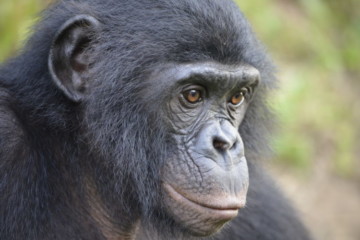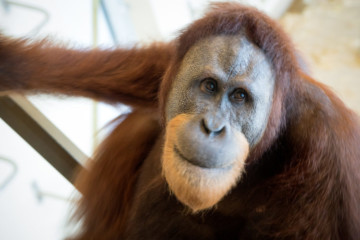
Virtual dementia experience
The Virtual Dementia Tour gave people in St Andrews the chance to experience the world of those living with dementia.

The Virtual Dementia Tour gave people in St Andrews the chance to experience the world of those living with dementia.

Chilean research student calls on academics to sign a letter calling for solidarity with the Chilean people and the removal of troops.

A new cutting-edge research facility for advancing scientific knowledge on chimpanzee cognition and behaviour has officially launched.

Apes understand what others see and believe, a skill previously believed to be unique to humans, according to new research.

The School of Psychology and Neuroscience's world-renowned dementia expert Dr Maggie Ellis is shortlisted as a finalist for Converge 2019.

New research shows great apes can control their voice in a similar way to humans, giving a unique insight into the evolution of language.

Influential cognitive primatologist, Professor Josep Call, has been elected as a Fellow of the prestigious British Academy.

Scientists have made a breakthrough in understanding how human eyes process 3D motion – crucial for hand-eye coordination.

Evolutionary adaptations resulting from cultural change, such as humans being able to consume dairy products, are more widespread in nature.

Levels of disgust drop in just days when people are exposed to a harsh environment, new research carried out at the St Andrews has found.